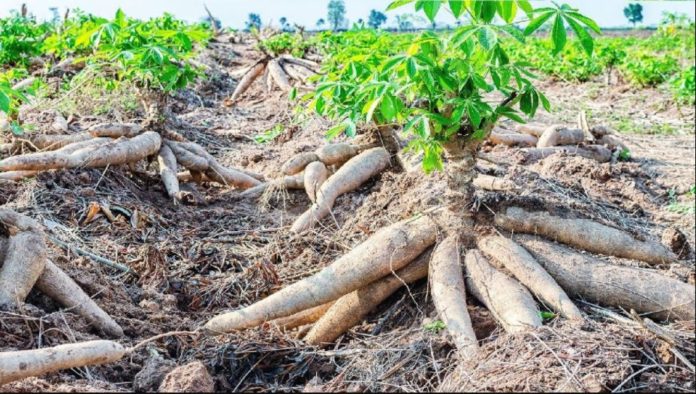Rwanda is seeking to up the production of cassava, maize, and potato through the introduction of genetically engineered varieties that are resistant to diseases, pests, and drought.
This follows the launching of the country’s Agricultural Biotechnology Programme on Friday last week by the Rwanda Agriculture and Animal Resources Development Board (RAB) and the African Agricultural Technology Foundation (AATF), an international not-for-profit organisation designed to ensure food security and reduce poverty in Africa.
The five-year initiative, funded at a tune of $9.9 million grant from the Bill & Melinda Gates Foundation, is set to transform the East Africa nation’s agricultural sector by addressing key production challenges in cassava, maize, and potato.
These improved crop varieties are expected to provide Rwandan farmers with increased resilience and higher yields, ultimately boosting food security and household incomes.
Speaking on behalf of Honorable Dr Ildephonse Musafiri, the Minister of Agriculture and Animal Resources, Dr Telesphore Ndabamenye, Director General of RAB, expressed gratitude to the Bill & Melinda Gates Foundation for their support.
He reaffirmed Rwanda’s commitment to adopting innovative technologies to increase yields, improve profits, and strengthen climate resilience.
The programme, running from October 2024 to October 2029, is a result of extensive collaboration between RAB and a range of international partners, including AATF, Bayer, CIMMYT, the Donald Danforth Plant Science Center, the International Potato Center, and Michigan State University.
AATF, as the primary grantee, will manage the programme, while RAB will oversee in-country activities, regulatory processes, and advocacy efforts.
The Rwanda Agricultural Biotechnology Programme is expected to have a transformative impact on the agricultural sector, enabling farmers to overcome the persistent challenges posed by pests, diseases, and climate change.
By increasing yields and reducing crop losses, the programme aligns with Rwanda’s broader goals of improving food security, enhancing rural livelihoods, and reducing the country’s reliance on costly imports of staple crops like maize.
The launch event gathered over 50 stakeholders, including government officials, researchers, and representatives from international agricultural organizations.








